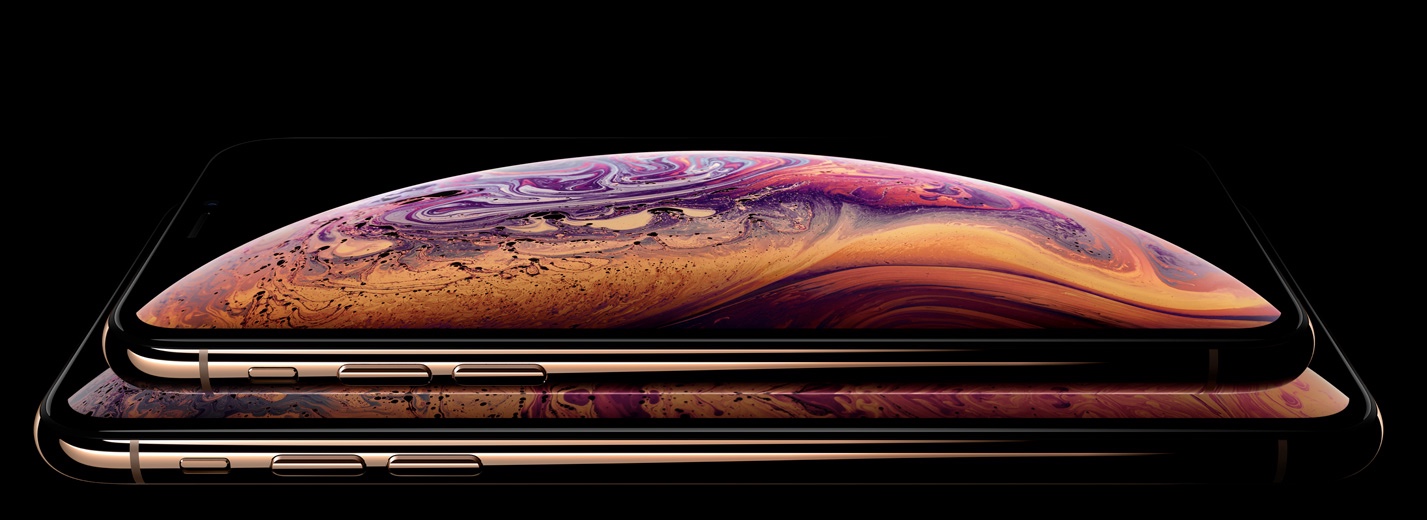
I should note that, while AAWP is a site for Windows on phones, by definition, the somewhat stagnant state of Windows 10 Mobile means that it's tempting to look elsewhere when researching the best smartphone to buy next. One (and perhaps best) option will be the new Google Pixel 3 devices, running Android 9, which are being launched in a month's time. Android still offers a better multitasking experience (i.e. stuff happening in the background) than iOS or - in fairness - Windows 10 Mobile.
But in the meantime we have the new Apple iPhones:
| (Prices in £, including VAT) | Starting price | Highest storage option price |
| iPhone Xr | £749 (for 64GB) | £899 (for 256GB) |
| iPhone Xs | £999 (for 64GB) | £1349 (for 512GB) |
| iPhone Xs Max | £1099 (for 64GB) | £1449 (for 512GB) |
So somewhat eye-watering prices, to say the least, though Apple gear is well engineeered and does at least have good resale value - plus the legendary support via its Store network, so you have to factor that in.
In summary, the iPhone Xs and Xs Max are similar to last year's X, but with faster internals and (apparently) louder speakers, plus the new 'Max' is obviously bigger, so 'phablet' sized. And there's the new 'affordable' Xr, with downgraded camera. But should you buy any of these to replace an elderly Windows 10 Mobile phone?
From my earlier article:
At which point, the question becomes, what to move to? A cynic might say 'Almost anything else', but I argue here that anyone steeped in Lumias, in particular, will have certain expectations of a replacement device:
- Excellent camera, not too much artificial enhancement
- High amplitude stereo microphones, for recording music, for example
- High contrast screen that works well in daylight
- Qi wireless charging
- microSD expansion, for keeping hundreds of GB of media on hand and instantly swappable
- 3.5mm audio jack, for plugging in headphones and auxiliary systems (cars/hi-fi, etc.)
- a proper 'back' control, letting you step back in an app and its interface
- plugging it into (e.g.) a Windows computer should let you see all the phone's files and folders are allow two way transfer of files, documents, media, and so on.
- and, finally, a nice-to-have, a replaceable battery (though as I've ranted before, these aren't trivial to source, so the facility is usually moot!)
Not all of these are givens, amazingly, in 2018's phone landscape. I'm going to rule out iPhones immediately, since:
- they've never been expandable
- they haven't had an audio jack for years
- they still - in 2018 - can't shoot video with stereo audio
- they don't have a reliable back control or gesture that works in all apps and panes
- the way Apple hides the file system completely is anathema to someone brought up on the idea that smartphones are pocket computers and should be able to be treated as such in terms of files and folders
The comments on iPhones still apply, though at least Apple has finally - after a decade - enabled stereo audio recording, so at least that downside doesn't apply. And, in fairness, we're now seeing some Android flagships copy the non-expandable, non-jack design from the iphone, so you have to be a little careful when picking an Android alternative too.
PS. If you're looking for a new phone on another platform, you may be interested in my thoughts on the 2018 'Smartphone minimum' in my latest Phones Show, here. The good news? Such a phone will only cost you around £200, rather more affordable than the iPhones mentioned above!
